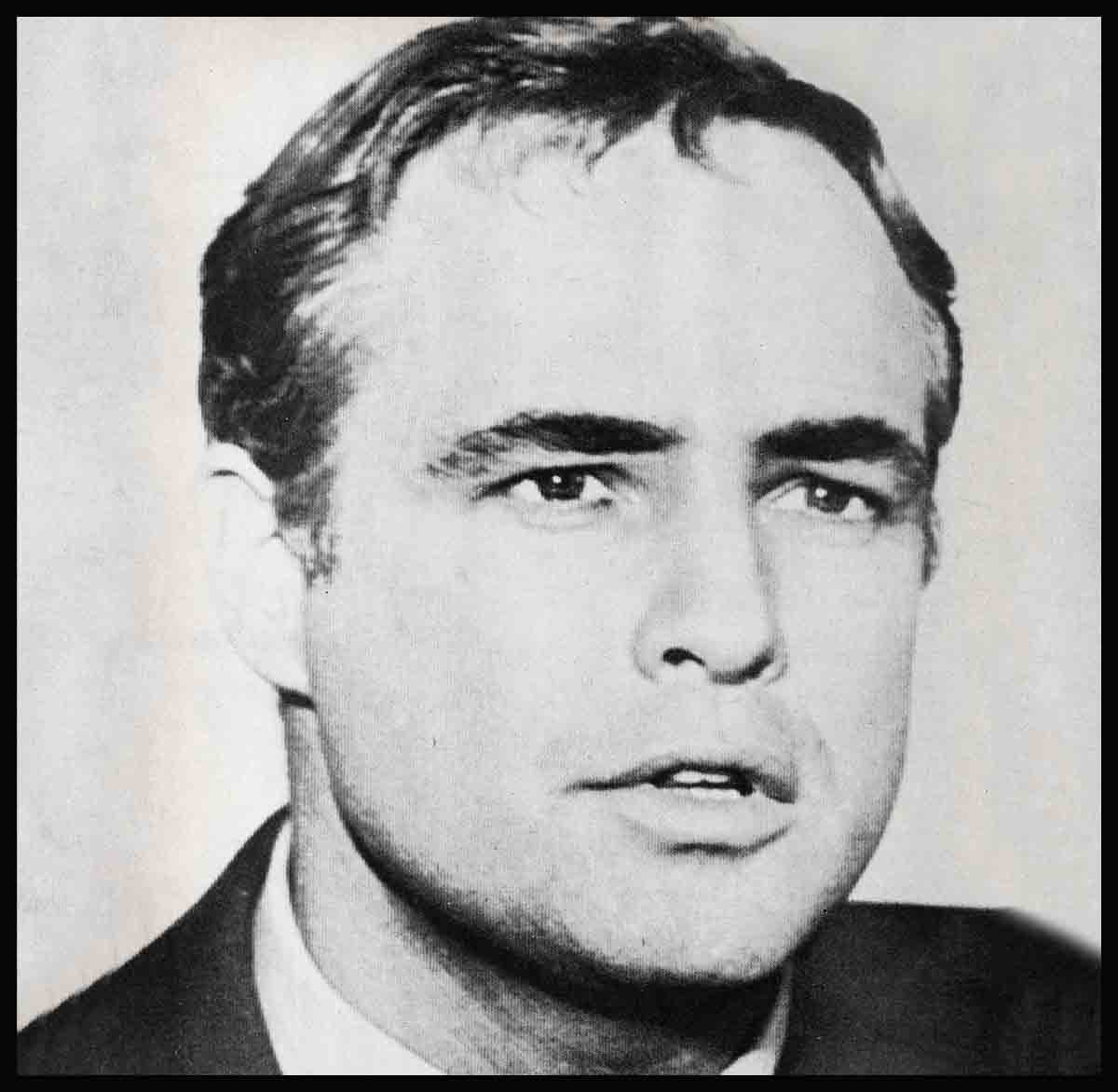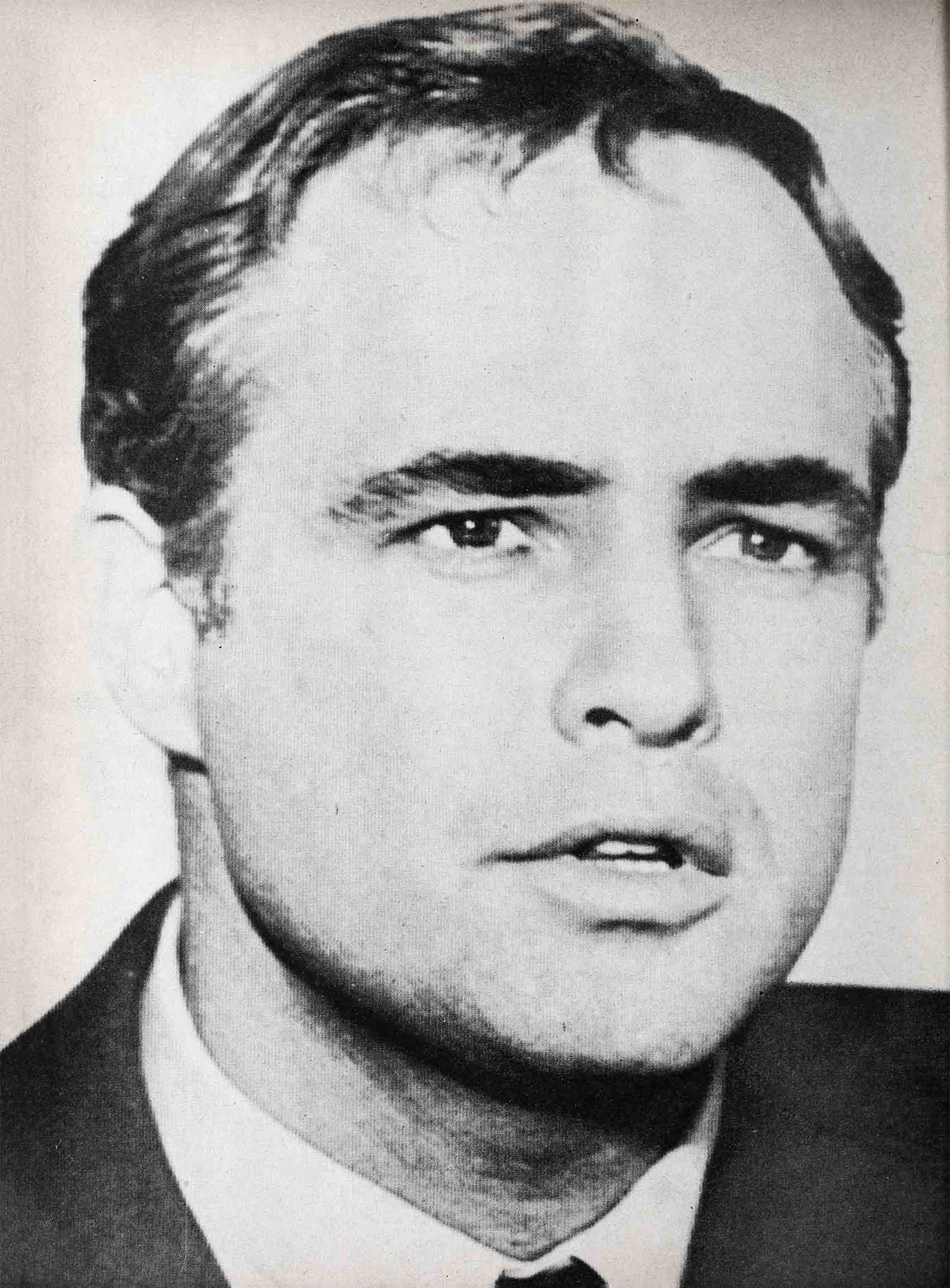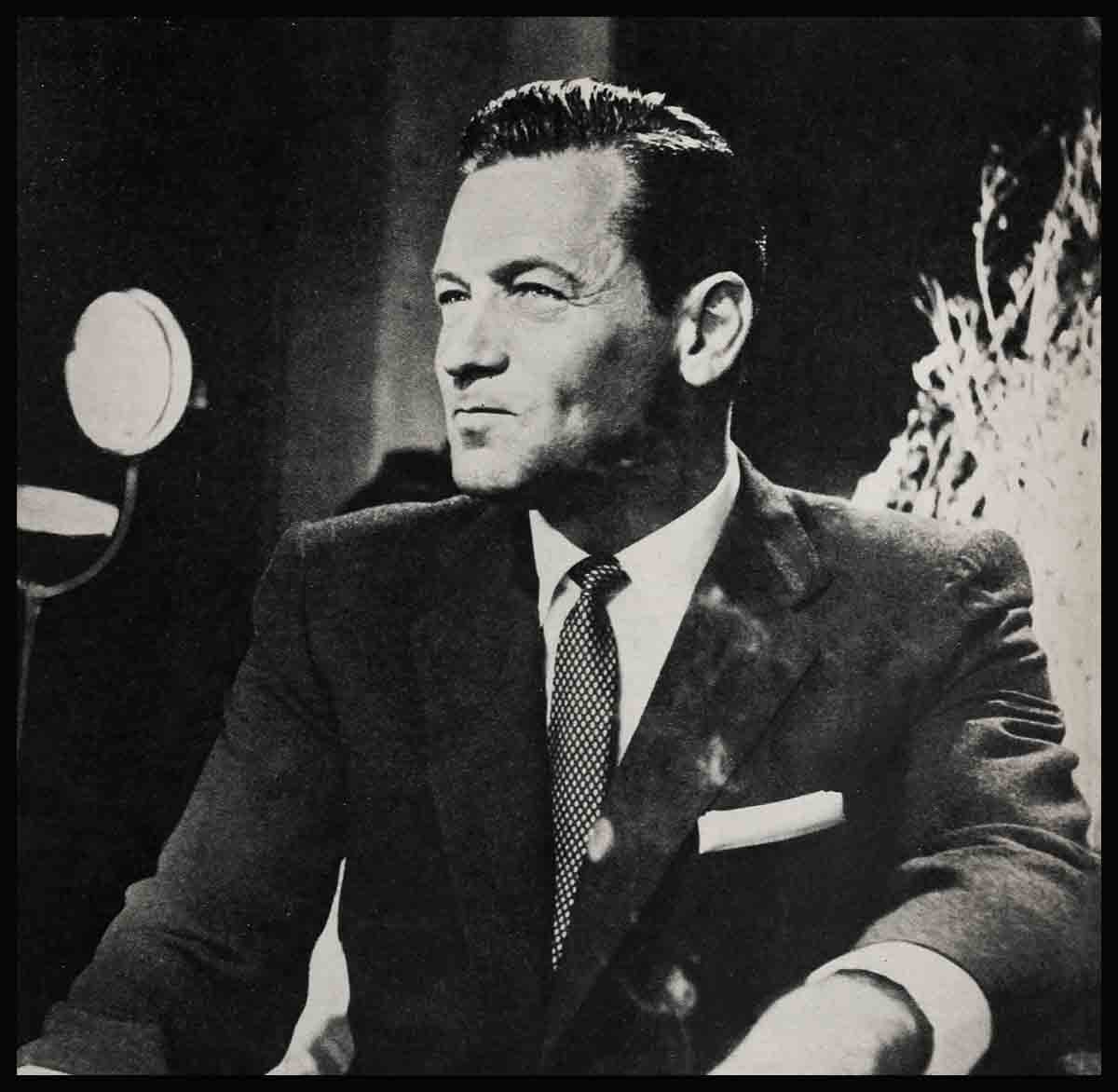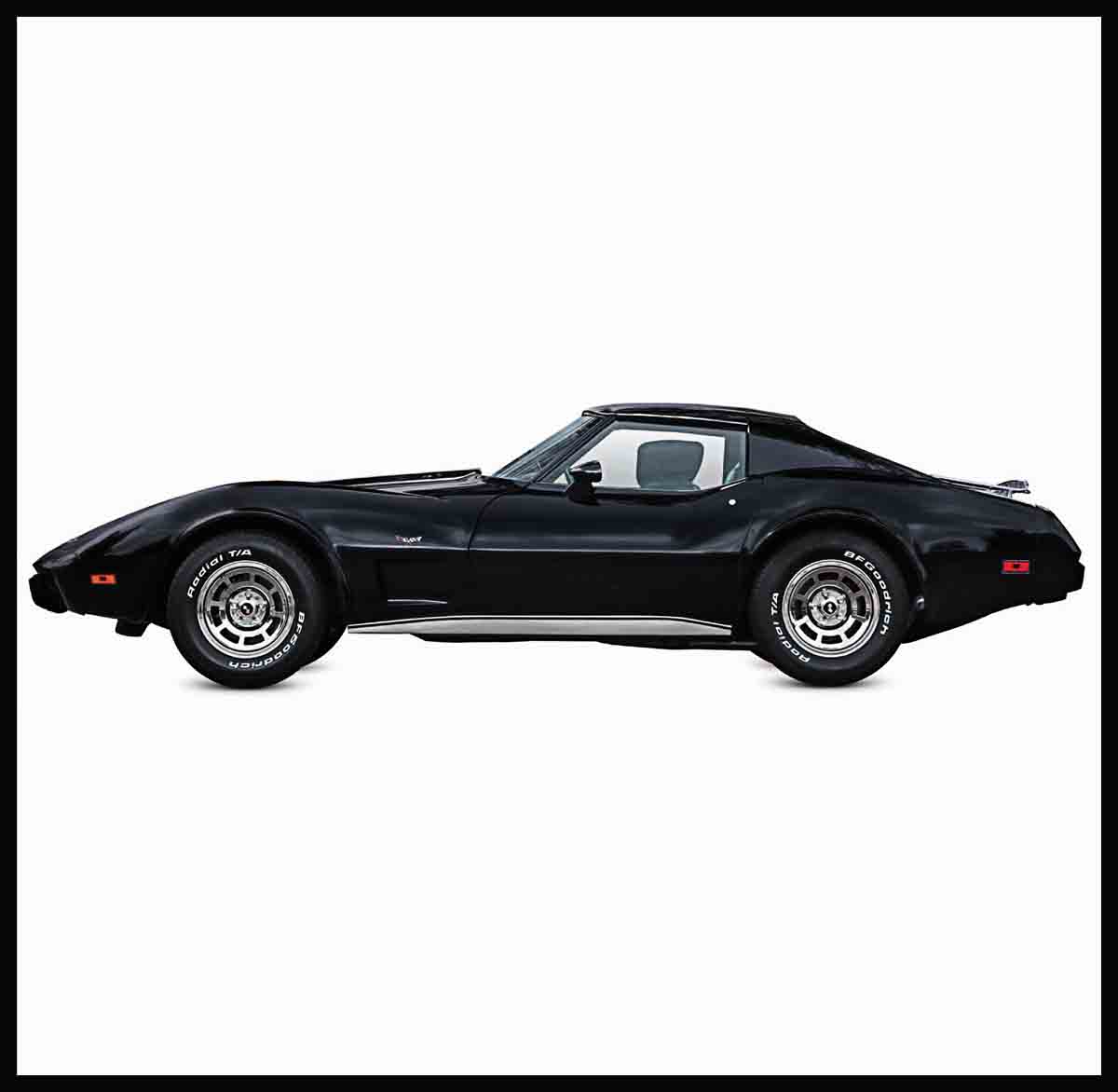
Marlon Brando Fathered My Baby
Love, for the beautiful Marie Cui, is still tender, but not nearly so many-splendored as the song would have her believe. “Marlon Brando is the father of my baby,” says Marie, but the Los Angeles Superior Court decided that, based on blood tests, Marlon could not be the father. Marie says the baby “was conceived in Los Angeles as a result of intimate relations with me and Marlon Brandoand said child was born in Manila, Philippines.” Herheartache is vaguely disguised by the cold words of legal prose: “After I became pregnant, defendant sent me to his doctor in Beverly Hills who is the same doctor who delivered defendant’s oldest child. Defendant also paid said doctor for my prenatal care, but after plaintiff (the baby) was born, defendant refused to see or talk with me. . . .” Here for the first time is the full story as Marie revealed it to Photoplay just before the court made the blood test results known. She did not tell her problem with shame or without passion, but only with the humility of a woman who gave herself in love to a man she adored. . . . In 1957, Marie Cui, an exotically beautiful girl of nineteen, was well on her way to success as an arduously trained ballet dancer in Manila. Impresarios of the dance, even movie producers, who had seen her perform were impressed with her devotion and dedication to the art. Marie was experiencing the quintessence of enthusiasm, and her mind and body were exhilarated with visions of the wonderful accomplishments that were hers to attain in the future. She was dancing then in a movie being made in Manila by a local film company. Then Marlon Brando, “America’s greatest actor,” visited the set during a stopover enroute to Japan to film “Teahouse of the August Moon.” To Marie, Marlon represented the pinnacle of her dreams. In person he was everything she had imagined—strong, handsome and overwhelmingly professional. The sight of him turned her knees and heart to jelly. But because of her inherent modesty, Marie had underestimated the impact of her own appearance on others. Suddenly she discovered that she had made an impact of equal force on Marlon Brando. He asked Marie for a date and she—almost not able to believe what was happening, said yes. His slow drawl of a smile, his soft, high-pitched voice, the touch of his hand, all these things told the sensitive Marie that somehow the gods had ordained that he would be attracted to her lithe and shimmering beauty.
Marie and Brando spent three days together before Marlon continued his journey to Kyoto, Japan. Three days so laden with love and passion that, for Marie, even one would have been enough to remember all her life.
But what Marie Cui thought was the end was only the beginning.
A short time later she received a message from Brando in Japan. He was yearning for her. Somehow, though in terms of eternity they had known each other for only a second, she had seized his heart and affected his soul.
Would she come and be with him, he asked of her, for a while in Japan?
Marie was on the first available plane.
Her striking, supple figure became a familiar sight around the “Teahouse” filming locations and she was a constant Brando companion in the hours after the day’s shooting. And as it happens to every woman who loves a man, Marie soon began to learn all about the man she adored, good things and not so good:
That she was not the first woman he had loved. That he was in many ways inarticulate. That he traveled with the greatest minds of culture and had a passion in him for knowledge. And a near-insatiable yearning for love and understanding from women.
It was a need in Brando that Marie understood and which she hoped to satisfy with her unselfish love. So began a romance which on the surface demanded all of Marie Cui but not quite so much of Brando. In the next five years a hundred events took place which would have warned a woman of less love and loyalty of the inevitable end.
But Marie was beyond reality. She accepted Brando on his own terms. She suffered quietly when he married Anna Kashfi, a half-Irish, half-Indian actress on October 11, 1957, and again at the eventual birth of Brando’s first child.
Marie ached for Marlon during the “terrible” ordeal of his divorce from Anna. When Brando acknowledged a later marriage to Maria Louisa Castenada (Movita) in Mexico in 1960 and a son from that union, Marie stood fast, beseeching her gods to give her understanding and hope.
And all during this five-year period Marie’s devotion never wavered. Whenever Marlon called her name, via friend, wire, letter or phone, Marie responded by going to him. From Hong Kong to Tahiti to San Francisco to Hollywood, it didn’t matter where. It only mattered that he needed and wanted her.
On one occasion Marie and Marlon dated in public and visited a San Francisco night club. As happened so often, Marlon was unable to resist the urge to play the bongos with the band. The crowd thundered its applause, and in view of the whole world Marlon returned to Marie at the table. Her heart filled with pride at what she felt was an open confession by Marlon that she, Marie Cui, was the woman in his life. Her smile beamed a radiance it had never beamed before.
The next day newspaper columnists commented on Brando’s performance and his “Chinese” companion. (Marie is only half Chinese, however. She is also half Filipino. She is tall and her ballet training has given her a stature and walk so regal that many have remarked that she seemed like “some queenly princess from a fairy tale.”)

In December, 1961, Brando called her from Manila to Hollywood. He had separated from his wife. Marie flew to his arms. Brando found an apartment for her and once again they began the search for “truth,” which Marlon often dedicates himself to: “the beauty of humanity” and the exhausting quest for the eternal “loveliness of love.”
But this time Brando seemed to stumble a little on the trail to truth. He vacillated with Marie. Sometimes his sudden apathy toward her made her feel as though love had jammed a full quiver of arrows straight into her heart.
During other phases he would take her out every night to parties at the homes of friends, to the movies and to some of the finest and most talked-about restaurants for dinner. At these times he made no secret of their relationship. And at these times, Marie was happy.
Yet most of Marie’s time was spent in loneliness. For days she would sit in the apartment waiting for the phone to ring. There were times when she felt she could bear the agony no longer. And then, out of the night, would come Brando’s plea. Marie told herself that her torment only made their love greater, more worthwhile, because she understood that no man, especially one like Brando, could give all of his life, all of his heart, to one woman.
But the reality Marie had so successfully eluded for five years suddenly yanked her, with a terrible wrench, from the dream world she had lived in. For in May, 1962, Marie found that she was pregnant.
Brando, Marie says, was very solicitous and extremely kind and understanding. He sent her to his doctor in Beverly Hills. He remained her companion and seemed even more gallant than he had been. As if to prove his devotion he bought her a silver necklace which Marie wore proudly for all to see.
At Universal studios, where Marlon was making “The Ugly American,” Marie was again a constant visitor on the set. Every day Marlon, after arriving at the studio for early morning call, would leave instructions for a gate pass for Miss Cui. Marie would appear at 9 or 10 A.M. and watch the rest of the day so she could be with Marlon again that night from the very moment he was free.
On one occasion, Marie came on the set with several friends from the Philippines. During a break Marlon took them around, introducing them to actress Sandra Dee and other famous players on the lot.
It was when Marie’s pregnancy became so obvious she could no longer conceal it, she states, that Marlon suggested she return to Manila. The thousands of miles that soon separated them began to work a change which Marie in her heart almost knew would come.
And it did.
“Marlon, for reasons I do not understand, did not answer my letters,” Marie points out, “and somehow my phone calls to him were not returned though I left many messages.”
The last weeks of her pregnancy, which most women know as the wonderful approach to the love and joy of birth, were for Marie a torment that was almost unendurable. Her only consolation was the hope for her baby. And in the last few days before its arrival she tried to forget her heartache and devote her mind and her body to the tiny life within her.
Yet she waited in vain for Brando to reply to her letters. “There were no answers,” says Marie, “only the great silence.”
She bore her baby in tears on February 27, 1963, in Manila. She named it Maya Gabriella Cui Brando.
In the months that followed she again went through the terrible anguish of frustration trying to reach Marlon in any way possible. Still the “great silence.”
Finally, Marie says, “I decided to bring the child to Marlon. I felt that if he could only see the baby he would love her as I did.” On July 4, 1963, Marie arrived in Los Angeles with the baby. But the gulf between Marie and Marlon still seemed as wide as the’ ocean she had just crossed to be near him. She couldn’t get to him.
Her calls were brushed aside with “Mr. Brando is busy,” or “I’m sorry, he is not in. Would you care to leave a message?” The messages, says Marie, were not answered. After nearly two weeks, Marie remembers, “I finally reached Marlon.”
“I’m sorry, Marie,” she remembers him telling her, “but I’m tied up right now. I have some people with me. Give me your number and I will call you back.”
So Marie Cui remembers the apathy of the man she claims is the father of Maya. Marie waited for Marlon’s call for two days. Sympathetic friends finally convinced her that, if only for the child’s sake, she should seek legal advice and take steps to name Brando the father of the baby.
She went to the office of Attorney Bernard Cohen. “Marlon Brando is the father of my baby,” she wept. She poured out her story of her love for the actor, which incredibly had survived what she termed Marlon’s indifference to her problems and those of her child. She could not, for example, work in the U. S. because she was a Philippine national without a permit.
Since Brando was so completely buffered from those he did not wish to see, a private investigator was hired to serve Brando with legal papers concerning Marie’s suit.
Detective William Lowe found Brando in St. John’s Hospital in Santa Monica, where the actor had gone to be treated for a kidney infection.
“I was rather surprised,” says Lowe, “after I found Mr. Brando, to realize that I was serving papers in a paternity suit to a man in the children’s ward of the hospital.” Somehow Brando had been placed amidst all of the babies and youngsters of the hospital. “Brando looked great,” Lowe pointed out after the encounter, “except for a three-day beard.”
When the suit made headlines, Marlon said nothing. He spoke out neither for nor against the woman who claimed he had fathered her baby. When the two met in the hospital for the court-required blood tests, Brando said, “Hello, Marie,” as if they were meeting under far less potent circumstances.
Then, on August 6, Superior Judge Edwards granted a motion by Marlon’s lawyer to dismiss the paternity suit, since the blood tests disclosed that Brando could not possibly have been the father of Marie’s little girl.
Two hours after the court handed down that decision, Marlon reportedly called Marie and told her that “none of this business would make any difference . . .” He also hinted that he would be in touch with her soon.
Marie, heartbroken over the court’s ruling, and still insisting Brando had fathered her child, returned to Manila.
Said her lawyer, “She used to be the typical geisha-type, quiet and subservient, but now she’s a woman scorned. She’s alone with the baby.”
Whether Marlon and Marie will see each other again—or not—one bit of mystic philosophy comes to mind. It is from the great and spiritually revealing book, “Songs of the Anointed One.” The saying goes, “The joy of love lasts only for the moment, the pain of love lasts forever.”
THE END
—BY ALAN SOMERS
Marlon’s latest film is “King of the Mountain,” produced by Universal-International.
It is a quote. PHOTOPLAY MAGAZINE OCTOBER 1963





zoritoler imol
1 Ağustos 2023hello!,I like your writing so so much! share we communicate more about your post on AOL? I need an expert on this area to unravel my problem. Maybe that’s you! Having a look forward to look you.